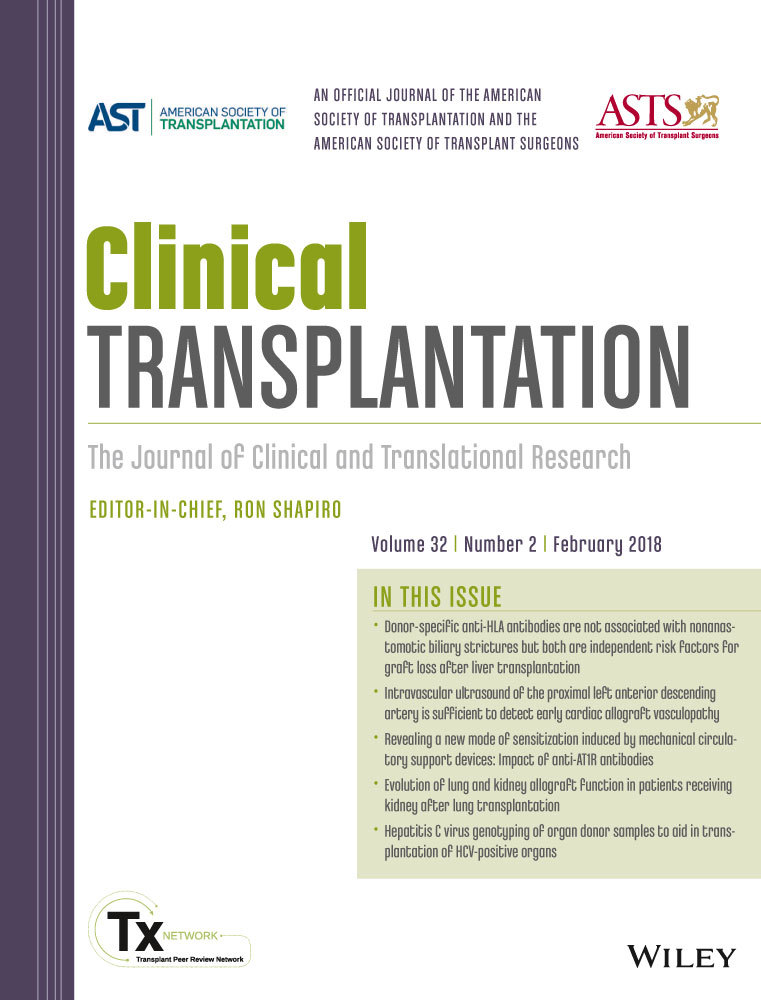Analysis of ABO chimera from peripheral red cells and reticulocytes by flow cytometry and micro gel column technique in patients post-ABO-incompatible HSCT
Funding information
This work was supported by National Natural Science Foundation of China (No. 81301515)
Abstract
Background
How to choose an appropriate method to monitoring dynamic ABO chimera post-ABO-incompatible HSCT is crucial to not only assess the status of erythroid engraftment but also achieve personalized safety transfusion.
Methods
We evaluated the efficacy of micro gel column technique (MGCT) and flow cytometry (FCM) by series of artificial ABO chimera mixtures from 0.5% to 50% and by investigating 15 cases of ABO-incompatible HSCT patients with longitudinally ABO blood grouping and ABO chimera from RBCs and reticulocytes.
Results
5% and 2% of ABO chimera mixtures can be efficiently detected by MGCT and FCM, respectively. 6.3% of donor RBCs with 44.77% of donor reticulocytes in the early phase and 7.9% of patient RBCs with 96% of donor reticulocytes in the phase of complete donor type can be detected by FCM rather than failure by MGCT simultaneously. However, in case 8#, 8.6% of donor reticulocytes rather than 99.1% of donor RBCs on the 98th day post-HSCT could adequately predict early relapse.
Conclusions
Investigation of ABO chimera from reticulocytes by FCM is a more effective strategy rather than ABO blood grouping and RBCs by FCM to indicate the true progress of erythroid alteration and achieve personalized safety transfusion post-ABO-incompatible HSCT.
CONFLICT OF INTERESTS
All authors declare no conflict of interests.




